Spotlight on Wuhan
Wuhan: Centre of innovation
Foreign scientists bring fresh viewpoints to our university and they are instrumental in transforming Chinese universities into internationally competitive research institutions. Zhang Qingjie, President, WUT
Heavy investment in science and technology research means Wuhan is becoming a competitive and innovative power in China.
WUHAN SITS at the intersection of the Han and Yangtze rivers; the capital of Hubei Province and the most populous city in central China. It boasts the highest number of undergraduate and graduate students in the world — 1.18million as of 2013 — exemplifying the effects of the last 20 years of Chinese economic reform. The country's rapid increase in research and development (R&D) investment over that period has seen it surpass the European Union average for R&D spending as a proportion of gross domestic product (GDP). Determined not to fall behind cities like Beijing and Shanghai, six of Wuhan's top universities spent nearly 5.3 billion RMB (US$855 million) on research and development in 2013. The city's government has also invested heavily in the Wuhan East Lake High-tech Zone, colloquially known as the Optics Valley of China. In 2012, the magazine Foreign Policy said that Wuhan would be the 11th most dynamic city in the world by 2025. With its large number of research institutions, Wuhan is on course to become another of China's centres of innovation.
Optics Valley and Biolake
The Chinese Academy of Science (CAS), Wuhan Branch, 58 universities and more than 27000 companies (98% of which are small-scale start-ups) share the 518km2 Optics Valley. 70% of annual government investment in Optics Valley goes to innovation and it has become an incubator for science and technology companies in central China.

Part of the Optics Valley called Biolake.
WUHAN NATIONAL BIOINDUSTRY BASE
In the past five years, Optics Valley has provided more than 1 billion RMB (US$161 million) to researchers looking for entrepreneurship opportunities in optoelectronics, biology, energy and environmental conservation, specialized equipment and IT-enabled service industry to translate lab results into practical innovation.
The area's achievements go beyond the hundred million kilometres of fibre optic cables it produces annually. One of the subsections of the Optics Valley is the Biolake, where companies focus on biomedicine, sustainable agriculture, medical devices, bio-manufacturing, health services and bioenergy R&D. Although Biolake was only established in 2008, it has become the fastest growing section of the Optics Valley and is expected to achieve annual revenue of 200 billion RMB (US$32 billion) by 2018.
Optics Valley and Biolake are great resources for new business and offer all the services a company could need. The city makes it a priority to reduce administrative costs and provides legal, financial, human resource, risk management and intellectual property services as well as tax credits. “There have been very favourable investment policies in recent years here,” says Chen Dongsheng, the managing director of Frasergen, a biotechnology company that set up a research facility there. “Wuhan provided a rich talent resource for hiring and Optics Valley provided financial support, subsidized office space and laboratory construction.” With lower operating costs and quality medical resources, Wuhan provides the basis for translational medical genome research. “It's another cost advantage in starting a company in Wuhan, compared to the other large cities in China,” adds Chen.
Subject specific research
While applied research enjoys strong local government support, basic research in Wuhan relies heavily on money from national funding agencies. Research institutions in Wuhan leverage their traditional strength and the development goals of a specific field of research in the hope of becoming leaders in that field. For example, Wuhan University of Technology (WUT) focuses on material and transportation science to address the huge demand from construction and novel materials required for vehicles in China. South-Central University of Nationalities (SCUN) focuses on chemistry and pharmaceutical sciences to protect the environmentally delicate area in Hubei and develop the local economy.
Huazhong University of Science and Technology's (HUST) strength in optoelectronics and magnetism is recognised nationwide, thus it has recently become home to Wuhan National High Magnetic Field and Wuhan National Laboratory for Optoelectronics (WNLO), both national level facilities. WNLO collaborates with FiberHome Technologies Group, Wuhan Institute of Physics and Mathematics (WIPM) of CAS and China Shipbuilding Industry Corporation to better serve the strategic development goals of China. HUST has signed a Strategic Cooperation Framework Agreement in 2011 with Wuhan University to exchange students, lectures and researchers to combine their advantages.
Huazhong Agricultural University (HZAU) traditional strength is in agricultural research and has become one of the leading biotechnology universities in China. “We actively promote a teamwork culture among the researchers,” says Prof. Gao Chi, the HZAU's vice president. “Junior researchers at HZAU benefit from having a designated senior researcher as their mentor in their field.”
China University of Geosciences (CUG) also focused on developing its core strength. A Group of its researchers recently published a paper in Science detailing the lunar geological discovery made by China's Moon mission in 2013. CUG's president Yanxin Wang hopes that CUG will become a world-class university for earth science research and will provide a think-tank for tackling the resource scarcity and environmental pollution that the country must overcome to further develop.
Luo Jie, professor of biochemistry and molecular biology in the State Key Laboratory of Crop Genetic Improvement at HZAU, is enthusiastic about the collaborative spirit among Wuhan's institutions. “I often let researchers from HUST and Wuhan University use research equipment at HZAU if they're not available at their home institutions,” he says. “Universities in Wuhan are located closely together and collaboration between different universities is encouraged.”
When the Wuhan Institute of Virology (WIV) of CAS was established in 1956, its main research focus was on veterinary viruses and plant viruses that can be transmitted with common pests. After the outbreak of severe acute respiratory syndrome (SARS) in China in 2002, WIV has gradually taken on more research projects on human viruses such as hepatitis, AIDS, influenza and SARS following the demand of more home-grown research on human viruses in China. As a result, WIV was in the national spotlight when construction of level-4 (BSL-4) laboratory finally finished this February, 12 years after its initial proposal. It is the first BSL-4 lab of China and its completion makes China the tenth country in the world to have the capacity to study dangerous viruses such as Ebola.
As a CAS institute, WIV's strength lies in basic research, but it has also been collaborating with universities, hospitals, the Chinese Centre for Disease Control and start-up pharmaceutical companies to conduct multi-disciplinary research and transform results of basic research into medicine and therapies. According to the director of WIV, Chen Xinwen, “in the past the best undergraduate science students and graduate students tended to choose to pursue their PhD training and post-docs abroad.
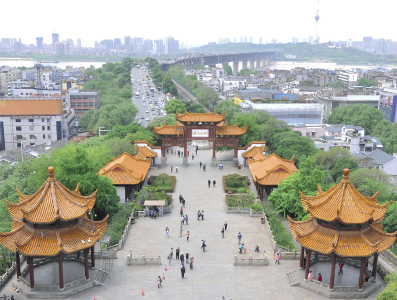
Wuhan has more undergraduate and graduate students than anywhere else in the world
WAHAHAZ/THINKSTOCK
“Just like other CAS institutes, we are hoping to attract more of the best students to stay in China and study and work at WIV.”
International Collaboration
When foreign researchers and research institutions seek collaboration opportunities in China, they often look to cities like Shanghai and Beijing first. Leaders of institutions in Wuhan understand they must make an extra effort to establish international collaborations. In 2011, Zhang Qingjie, the president of WUT, decided it should focus on fostering international collaboration to improve the research capacity of the university. He hopes to do this by “by hiring young researchers that have extensive research training abroad,” he said. “We help them establish their own lab at WUT and they would help WUT liaise with their former mentors to establish joint labs with foreign universities.” This was the university's route to establishing the Joint Nano Key Laboratory, set up by Prof. Charles M. Lieber of Harvard University and Prof. Mai Liqiang, who is now the executive dean of WUT's International School of Materials Science and Engineering.
HUST, HZAU, CUG, SCUN and WIV are enthusiastic about hiring international researchers and have been able to do so through various global recruitment programmes that have emerged from China's central and provincial governments since 2011. These programmes that provide earmarked funding and preferential policies to lure foreign researchers to Wuhan. Zhang believes that “foreign scientists bring fresh viewpoints to our university and they are instrumental in transforming Chinese universities into internationally competitive research institutions.”
One of these recruitment programmes is the “Hundred Talents Program”, started by CAS, which provides three million RMB (US$0.5 million) for qualified researchers with more than four years of experience abroad who want to move back to China. The money can be used as start-up research funding. Since 1994, more than 1000 researchers have benefited from this highly selective programme. Unlike CAS institutes, which are under the jurisdiction of Ministry of Science and Technology, most of the top universities in China are under the supervision of Ministry of Education so they are not able to participate in the “Hundred Talents Program”. But universities and technology companies can use similar programs such as “Thousand Talents Program” to help attract foreign researchers.
Known in China as the “Thoroughfare to Nine Provinces”, Wuhan is attracting researchers and entrepreneurs from around the world to join its development to fulfil its city slogan “Wuhan, different everyday!”
Family support
Tang Hong, vice-director of Wuhan Institute of Virology, understands the challenges of moving to China after years in a career abroad. He took advantage of the CAS “Hundred Talents Program” when he returned to China 10 years ago. These global recruitment programmes not only provide start-up research funding for international researchers, they also hold the institution responsible for providing family support to the scientists, including housing allowance, spouse employment and their childrens' education.
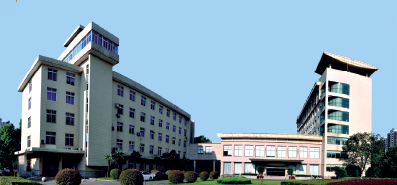
WUHAN INSTITUTE OF VIROLOGY
WIV looks to provide similar assistance when hiring international researchers looking to move to China. Xu Hongge, director of human resources of WIV, thinks that family support is important for newly-hired researchers to adapt to work and life more smoothly. “We call it ‘stablizing the morale’.” The institute asks researchers about family support issues in the hiring process. They ask if spouses are looking for employment opportunities in Wuhan or if their children need to attend a local kindergarten or school.
“If the answer is yes, we will look for openings within WIV and CAS Wuhan system to see if anything interests the researcher's spouse,” says Xu. “We helped our vice director, Tang Hong with his wife's employment in Wuhan. We have had such policies for many years and have helped many families of our researchers.”
-------------------------------------------------------------------------------------
Wuhan University of Technology, a University of Asia Top 100 and World Top 400
WUHAN UNIVERSITY OF TECHNOLOGY
Wuhan, the largest city in Central China and a famous Chinese “River City”, is home to Wuhan University of Technology (WUT), a combination of the former Wuhan University of Technology (established in 1948), Wuhan Transportation University (established in 1946) and Wuhan Automotive Polytechnic University (established in 1958), which merged on 27 May 2000. The university has three campuses, including the Mafangshan Campus, the Yujiatou Campus and the South Lake New Campus, occupying a total of 267 hectares. 
WUT, one of the main priority constructions under the “State 211 Project” for Chinese higher education institutions, is one of the leading Chinese universities under the direct administration of the Ministry of Education. The Material Science and Engineering discipline is also part of the “State 985 Project” that funds the development for world-leading universities in China. Its success is reflected in the rankings: the University was ranked 49th in the Times Higher Education's Asia University Rankings 2014 Top 100; and entered into the world top 400 universities rankings 2014–2015, also issued by the Times Higher Education. WUT is one of 11 Chinese universities in Mainland China listed in the rankings.
Currently, WUT has about 5,300 staff members, including 767 professors, over 1300 associate professors, four academicians from the Chinese Academy of Engineering, one academician from the Chinese Academy of Science and one member of the Royal Academy of Belgium. In addition, the University has held open global recruitment of seven famous foreign professors to be its “Strategic Scientists” in the area of Materials Science & Engineering, Mechanical Engineering, Naval Architecture and Ocean Engineering. The University also has over 36,700 undergraduates, 16000 postgraduates (including Master and PhD students) and more than 1300 international students housed in 23 academic schools, studying across eight state key disciplines in 77 Doctoral programmes, 226 Masters programmes and 87 Bachelors programmes.
WUT possesses 26 innovative research centres with internationally renowned laboratories including two State Key Laboratories, two State Engineering Laboratories, and ministerial and provincial-level laboratories specializing in new materials, new energy, transportation and logistics, mechatronics and automobile, information technology as well as resources and environmental technology. 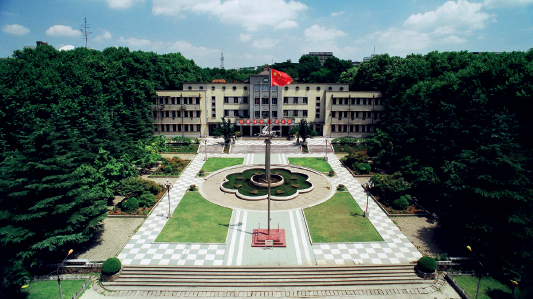
In the last five years, WUT has received funding of over 3.5 billion Yuan from government and industrial sectors for high-tech research and development, and has won 12 national awards for outstanding scientific research achievements and inventions. These inventions have placed WUT 9th, 8th, 13th, 27th and 6th amongst all Chinese higher education institutions in 2010, 2011, 2012, 2013 and 2014 respectively.
In 2001, the University established its Science Park in China Optical Valley in Wuhan, covering an area of 58.7 hectares. The Science Park has incubated and fostered more than six high-tech enterprises that work on new materials, fiber optical sensors, high-speed shipping, new energy technology and advanced manufacturing. In 2014, the total revenue of the Science Park reached 1 47 billion Yuan.
WUT has formed three important Boards of Directors with the building materials and construction industry, transportation industry and automobile industry, covering 202 large enterprises. The boards hold annual meetings to discuss the important issues concerning mutual development between the University and these three industrial sectors. 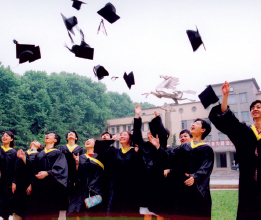
WUT has established cooperative relations with more than 100 overseas universities and research institutions including some from the USA, UK, Japan, France, Australia, Russia and the Netherlands. The University has also invited over 290 famous international scholars to be guest professors or honorary professors. 
In 2006, 2007 and 2012, the State Administration of Foreign Experts Affairs and the Ministry of Education jointly authorized WUT as a China Leading University to establish two Bases of “Foreign Outstanding Expertise-Introduction for Disciplines Innovation” in Advanced Materials Technology and one Base in High Speed Ship Technology. In 2008 and in 2013, the State Key Laboratory of Advanced Technology for Materials Synthesis and Processing and the State Key Laboratory of Silicate Materials for Architectures at WUT were nominated as the “State International Joint Research Center” by the Ministry of Science and Technology.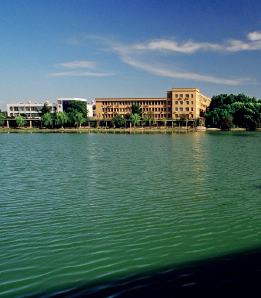
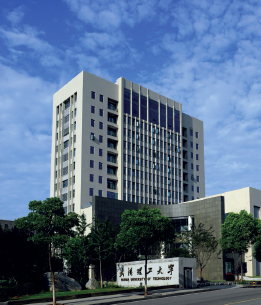
Since 2009, WUT has established several joint laboratories with overseas universities, including: the “WUT-Harvard Joint Nano Key Laboratory” in 2009, with Harvard University professor Dr. Charles M. Lieber, Fellow of the American Academy of Sciences, appointed as the Director of the joint laboratory.; the “Joint Laboratory of Advanced Optoelectronic Materials and Devices” with the University of Strathclyde in Scotland in 2010; the “WUT-UM Joint New Energy Material and Conversion Technology Key Laboratory” with the University of Michigan in 2011; the “WUT-UoS High Performance Ship Technology Joint Center” with the University of Southampton, UK, in 2012; and in 2013, the “WUT-UC Berkeley Joint Laboratory on Concrete Science and Technology” with the University of California Berkeley and the “WUT-Birmingham Joint Key Laboratory for Intelligent Machines” with the University of Birmingham, UK. The Thermoelectric Materials Research Team of WUT also entered the China-US Clean Energy Joint Research Centre in 2010.
WUT is continuously trying to hire international talent by developing joint projects and inviting young overseas researchers to work there. To seek common development, we warmly welcome high-level talents from around the world to join our various research departments, including professors, PhDs and postdoctoral researchers.
The recruitment plan includes the following disciplines: Engineering (Materials Science and Engineering, Mechanical Engineering, Information and Communication Engineering, Computer Science and Technology, Software Engineering, Instrument Science and Technology, Electronics Science and Technology, Control Science and Engineering, Civil Engineering, Architecture, Rural and urban planning, Mineral Engineering, Communication and Transportation Engineering,Naval Architecture and Ocean Engineering, Environmental Science and Engineering, Safety Science and Engineering, Chemical Engineering and Technology, Bio-medical Engineering, Pharmaceutical Science, Mechanics); Science (Mathematics, Physics, Chemistry, Statistics); Economics and Management (Management Science and Engineering, Science of Business Administration, Theoretical Economics, Applied Economics); Humanities and Social Sciences (Philosophy, Science of Law, Marxist Theory, Politics, Education Science, Foreign Languages and Literature, Journalism and Communication, Arts science theory, Design Science, Fine Arts).
WUT offers positions in various talent plans: Thousand Talents Program for Distinguished Young Scholars with the provision of research funds (2–8 million RMB), housing subsidy (1.5 million RMB); temporary housing and annual salary, Distinguished Professors Plan (under the Chang Jiang Scholars Program) with the provision of research funds (5 million RMB), housing subsidy (50 thousand RMB); temporary housing and annual salary from the “Hundred Talents Program” with the provision of research funds (2-5 million RMB) and housing subsidy (50 thousand RMB); temporary housing and annual salary from the “Chutian Scholars Program” of Hubei Province with the provision of research funds (1-2 million RMB), and a housing subsidy (40-50 thousand RMB); temporary housing and annual salary from the “15551 Talents Plan” of WUT with provision of research funds (to be negotiated), housing subsidy (to be negotiated) as well as other benefits.
Applicants should submit a detailed CV and a list of publications to Human Resource Office of WUT (rcb@whut.edu.cn). Confidential review of applications will begin immediately.
WUT never ceases to renew its profile and offers great opportunities for distinguished talents from all over the world. Here you can find the opportunities that best fit your skills and goals. We sincerely invite excellent scholars from home and abroad to join us at WUT! 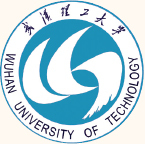
Address: Wuhan University of Technology 122 Luoshi Road, Wuhan, Hubei, 430070, P. R. China
Contact: Ms. Shuman Wen/ Mr. Wei Fang Human Resources Office, Wuhan University of Technology
Tel: +86-27-87163146
E-mail: rcb@whut.edu.cn
Huazhong Agricultural University seeks global talent
We have an attractive natural environment provided by a beautiful and vibrant urban campus.
Surrounded on three sides by clear lakes and backed by green hills is Huazhong Agricultural University (HZAU), a national key university of “Project 211” under the direct administration of the Ministry of Education. Located in Wuhan, the biggest city and transportation hub of Central China, HZAU's history can be traced back 117 years to Hubei Farming School, founded in 1898 by Zhang Zhidong, the governor of Hubei and Hunan provinces. The campus covers an area of 495 hectares, and contains well-spaced teaching blocks and lab buildings, making it an ideal place for teaching and research. Our institution continues to build on its 117-year legacy of progressive and innovative reform of its research and education systems with five new first-class strategic objectives that challenge convention. 
HZAU is committed to establishing a multi-faceted innovative system that inspires and facilitates the cultivation of creative researchers as part of a rich academic culture within the university.
Our university consists of 18 colleges and boasts two State key laboratories (Key Laboratory of Crop Genetic Improvement, State Key Laboratory of Agricultural Microbiology), four State national specialized laboratories, four national R&D centres, 19 provincial and ministerial key (open) laboratories, 24 provincial and ministerial R&D centres, and two provincial humanities and social sciences research units. The structure of our colleges and National Labs & Centers emphasizes the cross-disciplinary and innovative nature of research and approach to education and public service.
HZAU has established many multi-disciplinary research programmes, covering agriculture, natural resources, physical science, engineering, humanities, law, economics and management. The university programmes also feature bioscience research and giving prominence to agricultural disciplines. Specifically, our research strength is extensively related to plant science; animal sciences; veterinary medicine; horticulture & forestry sciences; fresh water fishery; food sciences; chemistry; environmental sciences; and agricultural economy. As one of the top three agricultural universities in the country, HZAU has strong research programmes on hybrid rapeseeds, green super rice, swine production, animal disease and vaccine development, high-quality citrus, potato microtuber, and transgenic cotton. Taking rice as an example, world-class research has been conducted in the fields of functional genomics, molecular biology and drought resistance, molecular breeding, natural resource management, farming system, and integrated crop management. Furthermore, we are committed to realizing our substantial public service mission through continually providing development strategies for rural areas and agri-industry.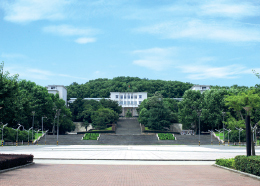
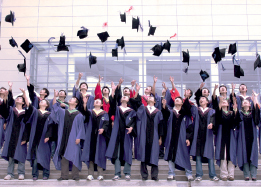
We continually seek to recruit faculty who excel at fundamental science and can work on broad teams to address the grand challenges of the region, nation and world. We warmly welcome any domestic and international researchers to set their goals and follow their dreams in HZAU. We invite suitably qualified candidates to apply for the positions of Professors, Associate Professor and Postdoctoral researchers.
Job Requirements
Professors
Candidates should be an Associate Professor (or above) or hold similar position in a prestigious overseas university, research institute, internationally renownec enterprise or financial institution. Candidates who distinguish themselves during their doctoral period are eligible for an exceptive admission.
Associate Professors
Candidates should acquire a doctoral degree and publish a certain number of academic of importance in his or her research field.
Postdoctoral Researchers
Candidates should have a full-time doctoral degree, have graduated less than two years ago published high-level monographs or papers as first or corresponding author and meet the standards of introduced lecturers in relevant colleges.
Compensation
Based on the academic merits evaluation of the applicant by the committee, for outstanding young talents, HZAU will offer competitive salary, research start-up fund, housing, allowance and etc. in Wuhan.
Application Procedure
For full consideration, interested candidates should first send CV to relevant colleges or to rcb@mail.hzau.edu.en. Following approval from the college, please download and complete the form and appropriate materials from the website. For further requirements and contact information of all the colleges, please visit our website. 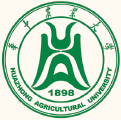
Tel: +86-27-87280957
E-mail: rcb@mail.hzau.edu.cn
Website: http://www.hzau.edu.cn
South-Central University for Nationalities seeks international talent
South-Central University for Nationalities (SCUN) has undergone rapid and comprehensive development in the past few decades. Founded in 1951 and located in Wuhan, the political, economic, financial, cultural, educational and transportation centre of central China, SCUN is a comprehensive university directly under the administration of the State Ethnic Affairs Commission, P.R.China. 
SCUN's expansive campus (256 acres) is decorated with trees, fragrant flowers, a beautiful lake and modern buildings with ethnic flavour. It provides a sound environment for teaching, studying, research and living. It is also home to the first Museum of Ethnology in Chinese universities.
SCUN is home to over 26,000 full-time students from all over the world, who study in various majors for their PhD, masters and bachelor degrees or in preparatory departments. SCUN hopes to make students from any background feel comfortable on our campus, which is reflected in the fact that 60% of our students are from ethnic minorities.
At present SCUN runs one post-doctoral research station. There is one Level I doctoral degree programme in Ethnology, eight Level II doctoral degree programmes, four under-construction doctoral degree programmes sponsored by Hubei Province, 18 Level I research-oriented master degree programmes, 80 Level II research-oriented master degree programmes, nine professional master degree programmes in 13 fields of study, and 79 undergraduate degree programmes in 10 academic disciplines. There are 33 provincial and ministerial key academic research institutes and laboratories. The total value of laboratory equipments amounts to about 0.24 billion RMB Yuan (38.69 million USD).
All this wouldn't be possible if it wasn't for SCUN's prominent faculty. Currently the university is home to over 2,000 staff, including 1311 faculty (228 professors and 538 associate professors). 48% of the faculty have obtained doctoral degrees and several hundred have studied aboard. Besides, candidates of national and provincial or ministerial talents programmes have reached the one hundred mark.
SCUN has established long-term cooperation with dozens of foreign universities and academic research institutes, including those in America, Britain, Japan, South Korea, Australia, Canada, Belgium, amongst others.
SCUN is now at a key stage of accelerating development in its goal to become a comprehensive teaching-and research-orientated university. We are actively seeking talented individuals, both local and foreign, to join us.
I. Major fields of recruitment
1. Disciplines of Sciences: Chemistry, Biology, Biomedical Engineering, Pharmacy, Mathematics
2. Disciplines of Engineering: Computer Science, Telecommunication Engineering & Electronics Information Engineering
3. Disciplines of Humanities and Social Sciences: Ethnology, Literature/Art, Pedagogy, Marxism Theory, Economics, Law, Management
II. Requirements
1. Candidates are expected to hold a doctorate degree from renowned overseas universities.
2. Candidates are expected to be able to show prominent achievement in specific fields, or demonstrate the potential to become leading figures in academic research or technology development.
3. Candidates with experience in leading-edge and innovative scientific research are preferred.
4. Candidates are expected to have published high-quality papers in specific top journals for relevant fields.
5. Candidates are expected to have team-work spirit.
III. Salary and benefits
SCUN offers favourable salary and benefits to successful candidates. Based on an academic assessment by the recruitment committee, we provide competitive annual salary to outstanding talents as negotiated between the university and invited talents, as well as scientific research funds and a certain amount of housing subsidy. In addition, for candidates with extremely outstanding achievements, we provide housing according to relevant provisions of the university.
Please refer to “SCUN Recruitment Notice on Introduction of High-level Talents & Supportive Measures for Introduction of High-level Talents of SCUN” for further information: http://www.scuec.edu.cn/zzrsb/.
IV. Application documents
1. Curriculum vitae.
2. Overview of academic achievements, including a statement of research interest.
3. Major work plan after recruitment.
Candidates should submit the above-mentioned application documents to the E-mail: rsc@scuec.edu.cn.
To meet the demand of disciplinary construction and talent cultivation, we sincerely invite high-level local and foreign talents to join us. The university provides preferential policies to employed talents. We will offer you a favourable working, developing and living environment.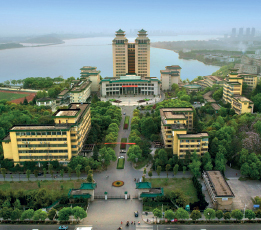

Address: No.182, Minzu Road, Hongshan District, Wuhan, Hubei Province, P.R.China.
Contact: For detailed information, please contact Human Resources Department (Talent Recruitment Office), South-Central University for Nationalities.
Tel: +86-27-67842183 / +86-27-67843026
E-mail: rsc@scuec.edu.cn
Website: http://www.scuec.edu.cn
Huazhong University of Science and Technology (HUST)
Surrounded by fields of green and commonly known as the “University in the Forest”, Huazhong University of Science and Technology (HUST), founded on 26 May 2000, covers an area of over 1,153 acres. It is the result of the merger of the former Huazhong University of Science and Technology, Tongji Medical University and Wuhan Urban Construction Institute. It is a national key university under the direct administration of the Ministry of Education of the People's Republic of China. It is among the first universities sponsored by both of the Chinese higher education promotion projects, “Project211” and “Project985”. 
HUST plays an active role in developing the national innovation system and has built a high-level, cross-disciplinary scientific innovation platform and a research base in the humanities and social sciences. This includes Wuhan National Laboratory for Optoelectronics; and bases for digital manufacturing of equipment and technology; gravitational research; transplantation medicine; environment and health sciences; as well as philosophy and social sciences, which feature research on “scientific development and humanities”.
At present, HUST's research focus is on 12 disciplines: engineering, medicine, management, science, philosophy, economics, law, education, literature, history, agriculture and art. It offers a variety of degree programmes, including 95 undergraduate, 224 graduate, and 183 PhD programmes. There are 35 postdoctoral research centres, seven national key primary disciplines and 15 national key subdisciplines.
HUST currently has over 900 professors and 1,300 associate professors, including 12 academicians of Chinese Academy of Science and Chinese Academy of Engineering; 84 renowned professors subsidized by the Chang Jiang Scholars Program; 51 promising researchers awarded grants from the National Science Fund for Distinguished Young Scholars; 41 scholars funded by China's Recruitment Program of Global Experts (also known as the Thousand Talents Program); 40 scholars entered into the Thousand Talent Program for Distinguished Young Scholars; and 224 young scholars funded by the New Century Outstanding Talents Project of the country's Ministry of Education. 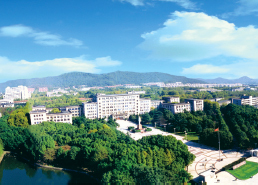
We aim to recruit candidates for China's National Talent Program. We offer competitive salaries, housing benefit and start-up research funding packages to qualified applicants.
Disciplines for Recruitment
1) Science: Mathematics, Physics, Chemistry
2) Engineering: Mechanical Engineering, Material Science and Engineering, Chemical Engineering and Technology, Electronic Science and Technology, Information and Communication Engineering, Computer Science and Engineering, Software Engineering, Civil Engineering, Geotechnical Engineering, Architecture
3) Medicine & Life Science: Basic Medicine, Clinical Medicine, Public Health and Preventive Medicine, Pharmaceutical Science, Biology, Biomedical Engineering
4) Management & Economics: Management Science and Engineering, Business Administration, Public Management, Applied Economics, Theoretical Economics
5) Humanities & Life Sciences: Philosophy, Marxist Theory, Law, Sociology, Education, Science of Physical Culture and Sports, Foreign Languages and Literature, Journalism and Communication, Design
Position
1) Thousand Talent Program for Distinguished Young Scholars
2) Distinguished Professors subsidized by Chang Jiang Scholars Program
3) “Hundred Talents Program” of Hubei Province
4) Young Academic Backbones: Professors/Associate Professors/Assistant Professors
Salary, Benefits and Other Support
1) Annual salary will be more than RMB350,000 (before tax) for each applicant funded by Thousand Talent Program for Distinguished Young Scholars.
2) The University will offer sufficient research resources, start-up funding and settling-in allowance.
3) It's negotiable for outstanding applicants.
Contact Information
Applicants should send a detailed CV and a list of publications to Mr. Guo (hr@hust.edu.cn). Confidential review of applications will begin immediately. For further information, please contact Mr. Guo:
Tel: +86-27-87556046 or +86-27-87559204
Email: hr@hust.edu.cn
Website: http://www.hust.edu.cn
This is an ongoing recruitment programme. We warmly welcome your inquiry and application!
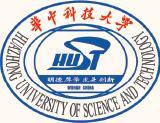
Contact: Mr. Guo
Tel: +86-27-87556046 or +86-27-87559204
E-mail: hr@hust.edu.cn
Website: http://www.hust.edu.cn
Intelligent manufacturing for the future
School of Mechanical Science and Engineering (MSE)
Strongly aware of its responsibilities to support a sustainable world, the School of Mechanical Science and Engineering (MSE), one of the most prestigious in China, is attempting to lead the worlds' next wave of intelligent manufacturing, by fostering deep scientific exploration, bridging interdisciplinary discovery and nursing brilliant innovation.

MSE, hosting four national research laboratories, aims to build a world-class innovative platform for manufacturing technology that attracts and cultivates motivated and creative researchers, advanced instruments and modern infrastructure. With unremitting efforts of its faculties and students, MSE has been reshaping the organization, research framework and academic support system to improve scientific and educational activities. Regarding the frontiers of manufacturing, MSE has shown itself a key player in supporting an innovation-driven China, and strives for a world-leading innovation engine in intelligent manufacturing for the future.
In particular, our research efforts dedicated but not limited to:
• Complex surface machining: to meet challenges in aero engine
• High power laser processing: for seamless structuring
• Intelligent robotics: for healthcare of the disabled
• Flexible electronics: the next ubiquitous platform
• Micro-nano manufacturing: for exploring the bottom world
• Advanced instrumentation: to support deep scientific discovery 
To see more exciting research, please visit us: http://mse.hust.edu.cn
Or email us: zhangfen@hust.edu.cn
School of Optical and Electronic Information (SOEI)
School of Optical and Electronic Information (SOEI) at Huazhong University of Science and Technology (HUST) was established on 6 June 2012, by merging the School of Optoelectronic Sci&Eng and the Department of Electrical Sci&Tech. The School has approximately 150 faculty members with broad and varied backgrounds, and strong research and professional expertise. There are also more than 2900 undergraduate students and over 1200 postgraduate students, supported by more than 50 technical and administrative members of staff. As a National Pilot School for Optoelectronic information and National talent base for integrated circuits, the School has seven important research platforms supported by the government, including Wuhan National Lab for Optoelectronics, National Engineering Center for Laser Machining, National Engineering Lab for Next Generation Internet Access Technology, MOE Engineering Lab for Sensitive Ceramics, MOE Key Lab for Electrical Information Functional Material, Wuhan IC Design Engineering Technology Research Center and Wuhan Research Institute for Smarter Cities. The school is strong in its research, having undertaking more than 180 national and enterprise cooperation research projects, and published over 500 SCI papers in the last three years. 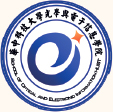
Our School fosters interdisciplinary research and we encourage applications in the following areas: Optical Engineering (Transformation Optics, Polarization Optics, Binary Optics, Optical Instrument, and topics related to Traditional Optical Engineering), Laser Technology and Engineering, Magnetic Material, Devices and Applications, Integrated Circuits and Systems, amongst others. Our school seeks exceptional, interactive and creative scientists to join its faculty. We invite applications from outstanding candidates for professor, associate professor and assistant professor positions.
Applications should be submitted electronically to xush@hust.edu.cn. All application materials should include: a curriculum vitae with a list of publications, a statement of research with a two-page description of significant research accomplishments and a two-page description of future research plans (four pages maximum), relevant publications (optional, maximum of three), contact information for a minimum of three references (optional for applicants who currently have tenure-track positions). If you have questions regarding submitting an application, please contact us at xush@hust.edu.cn, or call us at 86-27-87542593.
The University provides strong support for the research work done by its faculty. The positions offer competitive salaries, benefits and start-up funds, renovated laboratory space, access to numerous state-of-the-art core facilities and extensive opportunities for collaboration with neighbouring institutions. The Deadline for Application is December 31, 2015. Applications will continue to be accepted until all positions are filled. 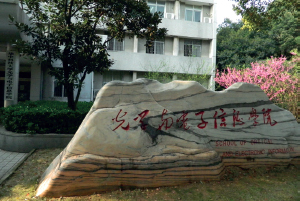
Wuhan Institute of Virology, Chinese Academy of Sciences
Establishment
The Chinese Academy of Sciences (CAS) Wuhan Institute of Virology (WIV) was established in 1956. It is the only institute specializing in virology, viral pathology and virus technology among 19 other biological and biomedical research institutes in CAS. 
Located in Wuhan, WIV boasts an excellent academic environment and first-class research facilities including the State Key Laboratory of Virology, the CAS Key Laboratories of Emerging Infectious Diseases, and Agricultural and Environmental Microbiology. The Institute also hosts two National Centers for Level 4 Biocontainment (NC4) and Viruses and Culture Collection (NCVCC).
As of 2014, WIV has 295 faculty and staff members, including 34 principal investigators and specialists. WIV has five recipients of the prestigious Distinguished Young Scientist Award and 15 fellows of “CAS 100 Talents Program”, all honored for their academic merit and innovative research. Around 300 hundred doctoral and postdoctoral candidates from top universities in the country are studying on campus.
Current Research
After becoming part of the CAS Knowledge Innovation Initiatives in 2002, WIV has significantly expanded and extended its research programmes from traditional agricultural and environmental microbes to medical virology, viral pathology and virus technology. WIV is now better positioned to answer fundamental scientific challenges and to meet the demands of the fast-developing society. Since its establishment, the WIV's competitive strength is currently at its best yet and is maintaining its momentum.
The past five years have seen a rapid growth in young and talented scientists joining the institute, who are highly competitive in both career development and leadership in related fields in China. The total research funds have reached over 370 million RMB, with 95% extramurally. Because of its average citations per paper, WIV is ranked 7th out of 19 biological research institutes of CAS, and is among the second best tier of institutions with similar research scopes in the world. Furthermore, WIV is the most active research entity in CAS that regularly provides advice on national key scientific research programmes and on strategies for the prevention and control of infectious diseases.
The research programmes, organized into Divisions, are focused on the priority of biosafety containment facilities and research platforms, which is one of the National Big Science Facilities. The programmes/Divisions include etiology and epidemiology of emerging infectious diseases, molecular virology, immunovirology, analytical pathogen microbiology, and agricultural and environmental microbiology. The programme of etiology and epidemiology of emerging infectious diseases is now world-renowned for virus surveillance in wild animals, and the origin of SARS coronavirus was first identified here. In the molecular virology research programme, WIV maintains a world-leading position in baculovirus research, especially in virus entry, virion trafficking and assembly, and has achieved impressive progress in the understanding of HBV, HCV, HIV, human herpes viruses, influenza viruses, and enteroviruses. The programme of viroimmunology is new, and houses world-class researchers studying on molecular mechanisms of type I IFN signalling and regulatory circuit of innate inflammatory response to viral infection. The analytical pathogen microbiology research programme focuses on technology-driven innovation research to integrate nanotechnology and virology to the development of nano-biosensors. The agricultural and environmental microbiology group sets the pace on basic and applied research on insecticidal viruses/bacteria and microbial degradation of pollutants, with an array of microbial insecticides being developed and commercialized. WIV has shown its national competitiveness and great potential in the long run.
Professors and Associated Professors recruitment
WIV has launched a global recruitment plan of principal investigators under the “Outstanding Foreign Talents” programme of CAS. The applicants can follow three different tracks according to different scientific merits and achievements: The “100-Talents Program” (http://www.pe.cas.cn/), the “1000-YoungTalents Program” (http://www.1000plan.org/) and the “Overseas Outstanding Scholars Program”.The steering committee will decide the best-fit programme-track for candidates, based on their background, potential, age and expertise.
In 2015, we plan to recruit the following priority categories of expertise without nationality/ethnic restrictions. Special applications for head positions of certain Divisions of WIV are also welcome.
1. Molecular etiology and epidemiology of emerging infectious diseases, including but not limited to pandemic/high pathogenic influenza, SARS, MERS, chronic viral hepatitis, and viral hemorrhagic fever;
2. Cross-species transmission;
3. Cell biology and signal transduction in virus-host interactions;
4. Viral infection, immunity and pathogenesis of viral infectious diseases;
5. Molecular ecology and systems biology of microorganisms;
6. Bioinformatics, biocomputing and biostatistics;
7. Animal pathology modeling of viral infections, KO/KI/Tg techniques;
8. Molecular pathology of bacterial infection;
9. Bio-imaging, X-ray crystallography, Molecular EM and cryo-EM modeling
Candidates shall submit the following:
1. A current curriculum vitae with bibliography of prior publications;
2. A brief career plan and research proposal;
3. Three letters of recommendation.
The institute will offer a competitive salary package to successful applicants, including a basic salary, pension and insurance package, residential property subsidiary and other benefits. The closing date for applications is at the end of 2015 and application evaluation will remain open until all positions are filled. 
Address: Human Resource Office
Wuhan Institute of Virology, CAS Xiao hongshan No. 44, Wuhan, Hubei, China, 430071
Contact: Hongge Xu, Chief
Tel: +86-27-87199413/9145
E-mail: hgxu@wh.iov.cn; gaodan@wh.iov.cn
Website: http://www.whiov.ac.cn
Translating bioinformatics for life science into genomic medicine for human health
Frasergen is an emerging high-tech bioinformatics and genomics information company, providing high quality contract research services and molecular diagnoses in disease therapeutics. From the headquarters in Biolake Innovation Park of Wuhan, China, Frasergen has been collaborating with International universities, institutes, hospitals, and corporations in 2nd and 3rd generation sequencing, bioinformatics analysis, software development, big-data warehousing and molecular marker development. 
Frasergen has a team of internationally renowned experts in genomics and bioinformatics to facilitate cutting edge research in fields of human health, ecology and environment, plant and animal biology, and microbiology. Frasergen's service is designed to the customers' needs, including consultations for experimental design, sample selection, sequencing strategy, and objective-oriented bioinformatics analysis. “Boosting life sciences with bioinformatics” and “improving human health with genomics medicine” have always been the driving mottos for Frasergen. Translating research, especially from cancer and rare diseases projects, into services that improves diagnostics, drug discovery, patient care and human health, is Frasergens' ultimate goal.
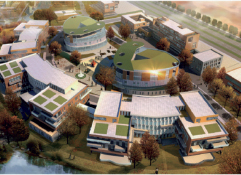
TRANSLATING BIOINFORMATICS
Frasegen continues to seek talent from across the globe with a passion for bioinformatics, genomics, or computational biology to tackling challenging but impactful questions in biology and human health. Frasergen is specifically recruiting the following:
• Bioinformatics Scientists that will lead a team of bioinformaticians and software engineers to develop new algorithms, tools and pipelines in high-level programming language and/or scripting language to analyze data from emerging sequencing technologies and to visualize the data on established platforms. The successful candidate should have a PhD in biology, bioinformatics, or computer science with a strong research record related to genomics or transcriptomics.
• Medical Laboratory Manager to lead a team of lab technicians and analysts to establish and maintain CLIA or CAP certified medical laboratory that will perform cancer genetic diagnostics. The duties involve establishing and validating diagnostic protocols using sequence based clinical biomarker assays from tissue or blood samples. The successfu candidate should be a meticulous individual with a need for perfection. The candidate should have a MD, MD PhD, or PhD in chemistry, biology, or clinical laboratory science.
Contact: jeffreychu@frasergen.com
Related links
Related links in Nature Research
Related links
Related external links
Wuhan University of Technology
Huazhong University of Science and Technology
Huazhong Agricultural University
China University of Geosciences


